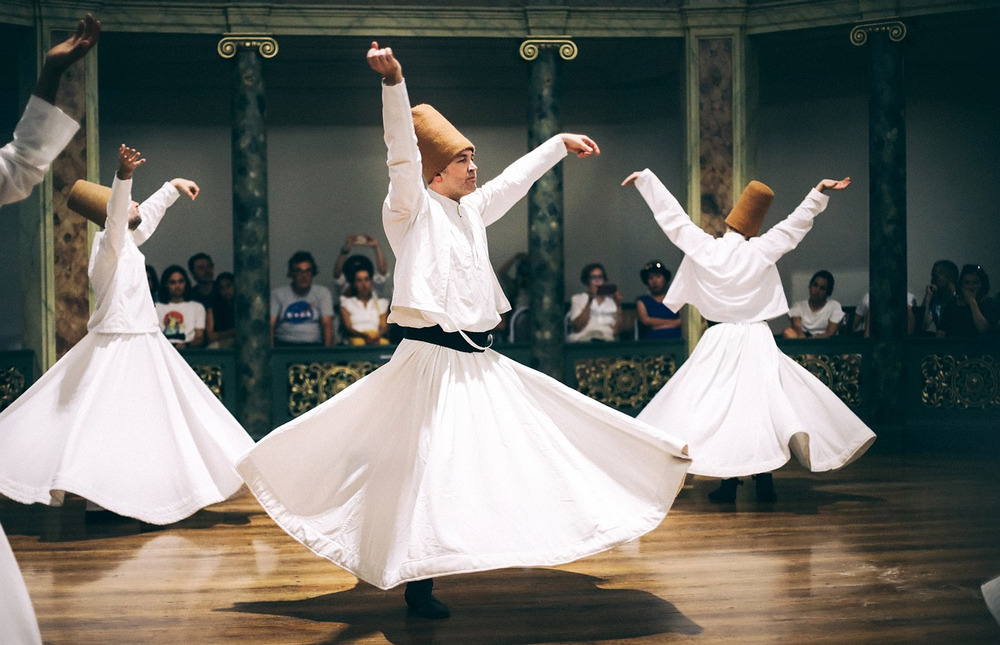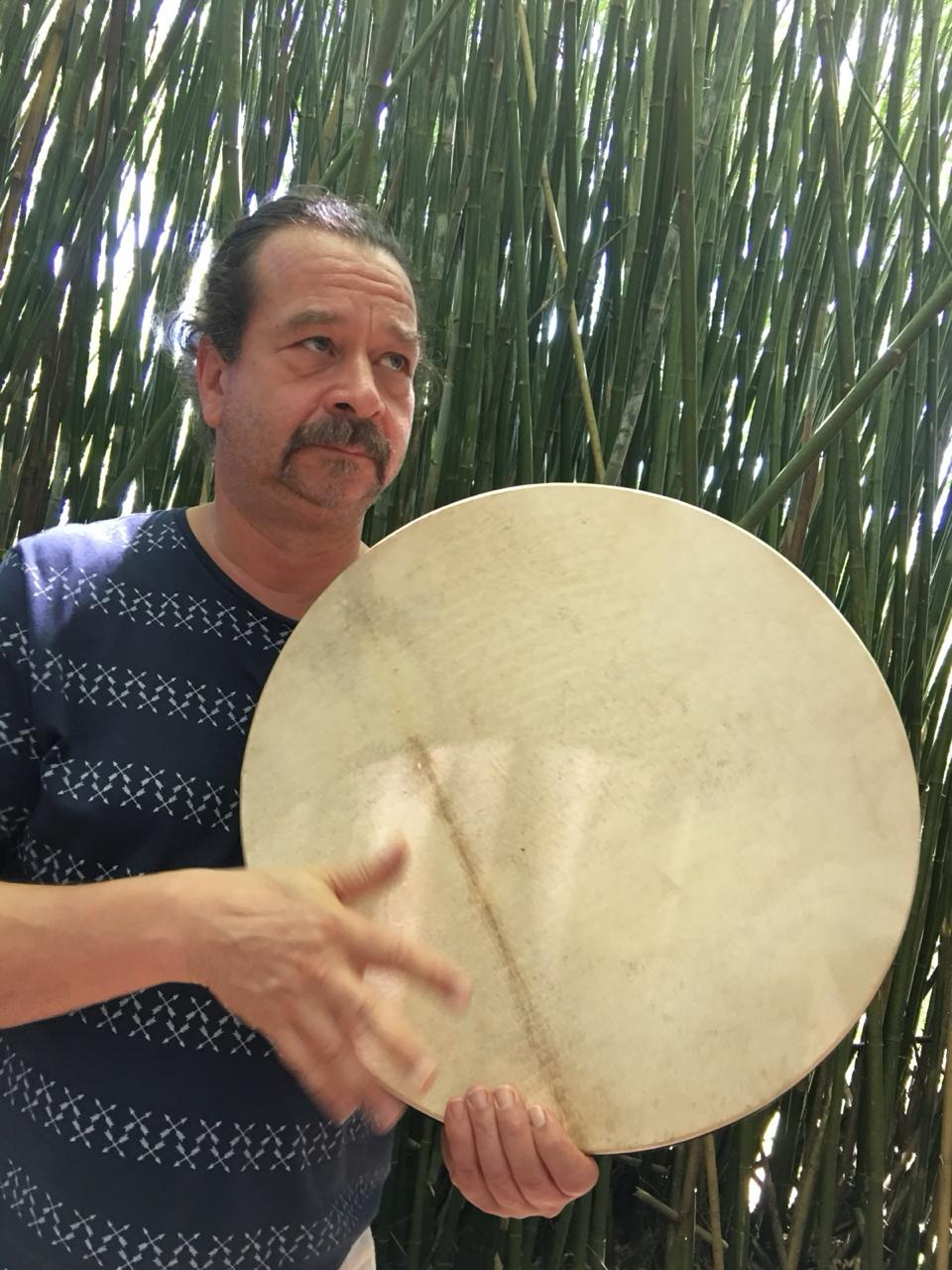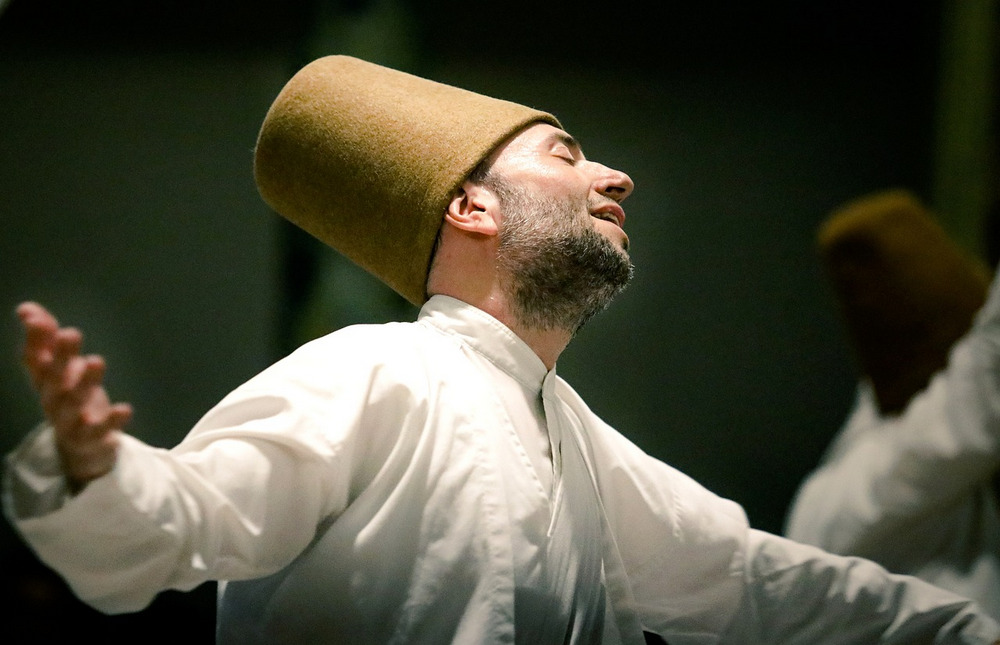Since 2017, we have been teaching spiritual and holistic teachings in the Sufi tradition through special workshops under the leadership of Ingo Taleb Rashid - Sheik of the Naqshbandi-Rashidiya Sufi Lineage. But, with so many names of Arabic origin, difficult to pronounce and even to understand, what is Sufism?
In recent decades, mainly because of the terrorist attacks carried out by radical Islamic groups, a negative and distorted image of the Islamic religion has been created, especially in the Western world. To make this situation even worse, there is a huge lack of knowledge about the structure of Islam. Within this structure, one of the least known characteristics of the Islamic religion is the mystical aspect, also known as the esoteric wing of Islam, which is the Sufism.
Several authors explain that all the great world religions have two dimensions: the exoteric and the esoteric. The exoteric dimension deals with dogmas, the laws to be followed, the exterior orientations. The esoteric dimension deals with contemplation, inner life and mysticism.
Thus, we can understand that Sufism, within the Islamic religion, is about the internal aspects of both religious practice and ethics. Beyond the intimate feelings and intentions, beyond the awareness of oneness with God, Sufism is about the deeper aspects of spirituality, about the mystical contact with God in the intimacy of the heart.
Several theories explain the origin of the word Sufi. One of them says that the word Sufi comes from suf, which means wool in Arabic, probably because of the simple garments, made of wool, of the first mystical practitioners. Another theory says that the origin comes from safa, an Arabic word meaning purity. For scholars, these words come from the ancient Egyptian language, but this does not mean that Sufism is Egyptian.
Sufism is considered timeless and maintains deep connections with ancient traditions and cultures such as the Egyptian, Celtic, Persian, and other cultures.
Sufism, as it is better known and spread in current times, is derived from the Islam which was revealed to the Prophet Mohammad and structured in the 11th century after Christ. There are reports of the existence of several Sufi saints prior to the 11th century, but the great Sufi schools, as they are presented today, began to organize themselves after that period.

What is Sufism is understood as the mystical, esoteric dimension of Islam. It is the search for self-knowledge and direct contact with the Divine through unorthodox practices, which must be carried out by a master, without previously established standards. Many times, these practices are not understood by those who are not in the context of the services.
Sufis believe that God is Love and that the contact with Divine Love can be achieved through a mystical union, regardless of the religion practiced. This concept of Divinity is very broad, being much more within the realm of Spirituality than of Religiosity. And, for this understanding that goes against the conventional idea of God, the Sufis have often been accused of blasphemy and persecuted even by Muslims.
For the Sufis, their life practice cannot be based on intellectual knowledge. They believe that mystical truth cannot be learned, but can be experienced through ecstasy. The dictionary defines ecstasy as:
"the state of one who finds oneself as it were transported out of oneself and the sensible world, through the effect of mystical exaltation or of very intense feelings of joy, pleasure, admiration, reverent awe."
For the Sufi, ecstasy can be achieved through singing, dancing, meditation, music, storytelling, and mystical prayer. Dhikr, the sacred movements that combine chanting, rhythm, movement, and meditation, are very common in the Sufi practices.
The term sufism is used to describe a vast array of trends and practices. The Sufi Orders, called Tariqas, may be associated and/or combined with various trends. In this article, we will highlight just two such orders: the Mevlevi - known for its "whirling dervishes," and the Naqshbandi - the order to which Sheik Rashid, that guides the Sufi teachings.

The Mevlevi Order
This order owes its name to the poet Jalal al-Din Rumi, called Mevlana in Turkish. It is geographically confined to the region where present-day Turkey and the Balkans are located.
In their practices, the Dhikr attach great importance to music and dance. The meditation exercise of the Mevlevi Order involves the recitation of prayers and chants, and then the participants take turns around the room in a dance in which they open their arms at shoulder height, with the palm of the right hand facing upward and the palm of the left hand facing downward.
The members of this order are known as the "whirling dervishes".
The Naqshbandi Order
Widespread throughout the Islamic world, the Naqshbandi Order was named after Baha al-Din Naqshband, a Sufi scholar from Uzbekistan. Unlike most other orders, they do not consider it essential to withdraw from society, and so many of their members play an important social welfare role in various Islamic countries.
Members of the Naqshbandi Order follow eight fundamental principles:
- Be conscious of the breath;
- See where one is walking;
- Travel inwardly;
- Experience solitude in the midst of human society;
- Remembrance;
- The restraining of thoughts;
- The controlling of thoughts;
- Concentration on the Divine.
Ingo Taleb Rashid
It's impossible to talk about what is Sufism without talking about Ingo Taleb Rashid.
German-born Iraqi, Ingo Taleb Rashid, Sheik of the Naqshbandi-Rashidiya Sufi Tradition, is a teacher of Sacred Dances and Martial Arts, choreographer, theater director, and creator of the School for Movement Concept based in Germany.
Rashid regularly gives seminars, workshops, lectures, and performances in Europe, Asia and South America. He is the producer/director of the Internacional El Haddawi – Winterschool em Frauenchiemsee since 2001, of the Chiemgau-Dance-Theater-Festival since 2008; and travels around the world to conduct seminars and workshops.

Angelo Piovesan and Sufism
Since 2017, in the first months of the year, Rashid spends a few weeks in Brazil developing work in the areas of Dance, Martial Arts and Sufism.
The Arabic expression "At Tariqat As Sufiyat” means "The Way of Purity". The Sufi is an eternal traveler who is not tied to a specific religious or cultural context.
The spiritual and holistic approach facilitates knowledge and deepening of the various aspects of Sufi training: meditation, bodywork, ritual dances, lectures, and stories from the Sufi tradition to achieve strength and balance between body-mind-soul.
The spiritual and holistic teachings within the Sufi tradition are carried out through workshops organizados por Angelo Piovesan, Ph.D. sob a orientação espiritual de Rashid.
Workshop on Fear and Transformation
The Fear and Transformation Workshop, held in 2019 under the direction of Rashid, provided a transformative experience for the participants.
Held at Sítio TAANTEATRO in São Lourenço da Serra, SP, the event explored fear as a potential for inner growth and self-knowledge.
The meeting combined practices from the Sufi tradition, such as the Sacred Movements - Dhikr (the union of chant, rhythm, movement and meditation) - with dance, improvisation, martial arts and gentle falling techniques, promoting awareness of primal fears and inner strength.
Participants went through stages of mindfulness, honesty, acceptance, trust and responsibility, culminating in a powerful walk over hot coals.
The journey brought together body practices and Sufi rituals, revealing a way of “dancing with fear” in a holistic approach to spiritual healing.

Conclusion
Meditation, bodywork, ritual dances, music, chanting, and stories from the Sufi tradition, among other aspects, are integrated into the spiritual journey of the Sufi disciple.
The basic philosophy of life for a person who is on the Sufi Path is: "To be in the world, but not to be of it."
This means to be free from ambition, greed, intellectual pride, blind obedience to customs and manners, or respectful love to people of a higher position.
May the Light of Love be the guide of all paths, at all times, in all circumstances, with all the people. And may Love foster Peace!


